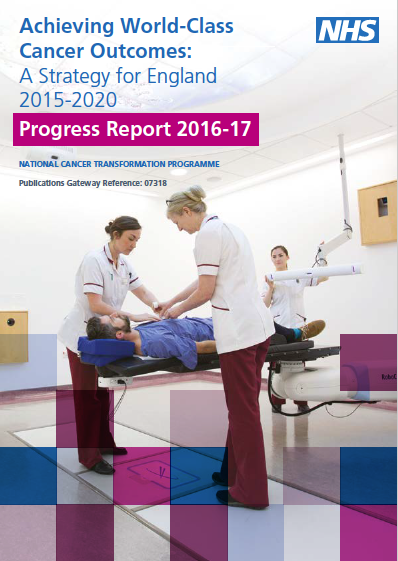Progress is being made with the modernisation of radiotherapy equipment across England, according to the latest update from the cancer transformation programme.
Achieving World-Class Cancer Outcomes - Progress Report 2016-17 describes the advances made over the past year as the National Cancer Programme moves towards the full delivery of the NHS five-year national cancer strategy.
Other improvements include new models of care introduced to ensure cancer is diagnosed earlier and improve survival, and the establishing of cancer alliances to bring together clinical leaders, healthcare workers, patients and charities for better co-ordination of care.
Five pilot sites are testing a new faster diagnosis standard with the intention that patients receive a cancer diagnosis or an ‘all clear’ verdict within 28 days.
A new quality of life metric, to measure long-term outcomes for patients once treatment has been completed, is being tested.
Radiotherapy services are seeing what is claimed to be the largest single modernisation and upgrade of cancer treatment equipment for 15 years.
Charlotte Beardmore, the Society’s director of professional policy, said, “There is good work relating to radiotherapy; both investment in capacity and work around configuring services into networks.”
“It is also encouraging that the report specifically mentions supporting staff," Charlotte continued.
"It says, ‘The care our patients receive is only as good as the people who deliver it and that’s why it’s vital that we support our existing workforce as well as lay the foundations for the next generation of doctors, nurses and specialist health professionals.’
“It’s very good to see the important work of radiographers represented throughout the publication, in pictures and words.
“The Society continues to lobby for more radiographers, both diagnostic and therapeutic, and for funding for post registration development in order to support the timely high quality delivery of imaging and radiotherapy services for all cancer patients.
“We have been working with charities and other professional bodies and royal colleges through the National Cancer Advisory Group continuing to make the case for investment in sufficient workforce, and funds to support the skills required to deliver advanced clinical practice.”
Charlotte concluded: "The report highlights that Health Education England will be publishing the cancer workforce strategy in December 2017; we eagerly await this!”
